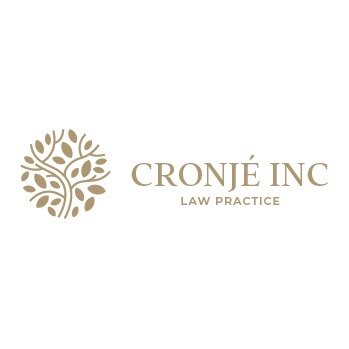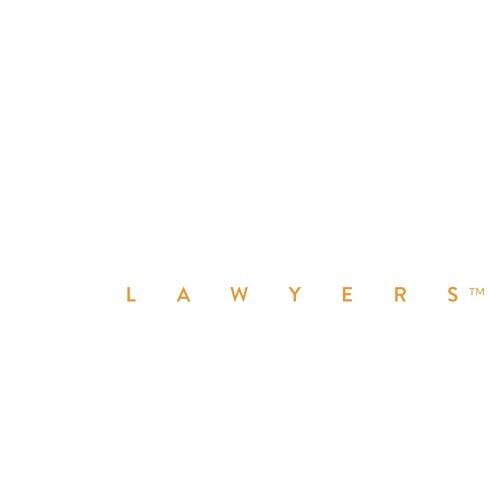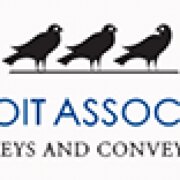Best Sanctions & Export Controls Lawyers in Windhoek
Share your needs with us, get contacted by law firms.
Free. Takes 2 min.
List of the best lawyers in Windhoek, Namibia
About Sanctions & Export Controls Law in Windhoek, Namibia
Sanctions and export controls are legal frameworks designed to regulate the cross-border movement of goods, services, technology, and funds for reasons of national security, foreign policy, and economic interests. In Windhoek, Namibia, these laws play a crucial role in ensuring compliance with both domestic regulations and international obligations. Namibia, as a member of the global community, often adopts international sanctions imposed by the United Nations or other multilateral bodies and overlays them with its own export control regime. Businesses and individuals involved in trade, finance, or transport must stay compliant to avoid severe penalties.
Why You May Need a Lawyer
Legal advice in the field of sanctions and export controls is essential due to the complexity and scope of the regulations. Common situations requiring legal assistance include:
- Exporting goods or services to countries or entities subject to sanctions
- Importing restricted or controlled items into Namibia
- Transacting with individuals or businesses listed on sanctions registers
- Applying for licenses and permits for controlled goods or dual-use items
- Internal audits and compliance checks for businesses engaged in international trade
- Responding to government investigations or enforcement actions
- Establishing internal compliance programs or training staff on obligations
Due to the high stakes involved, legal support is crucial to interpret the law correctly, minimize risks, and take proper steps if a potential violation is discovered.
Local Laws Overview
In Namibia, the control of exports, imports, and sanctions enforcement is governed by several national laws and regulatory bodies. Key aspects include:
- The Customs and Excise Act, 1998 outlines the procedures for importing and exporting goods, including restrictions and penalties for non-compliance.
- The Import and Export Control Act, 1994 empowers the government to regulate, restrict, or prohibit the import and export of certain goods and services.
- International sanctions, such as those mandated by the United Nations Security Council, are implemented through government notices and enforced by domestic agencies.
- The Bank of Namibia oversees financial sanctions, especially those related to prohibitions on financial dealings with designated persons or entities.
- Namibia Revenue Agency (NamRA) plays a role in monitoring and intercepting goods at borders that may be subject to export controls or sanctions.
- Penalties for violations can include heavy fines, seizure of goods, suspension of business licenses, and even criminal charges.
Compliance can be complex, especially when trade involves countries with evolving sanctions regimes or dual-use items with both civilian and military applications.
Frequently Asked Questions
What are sanctions and export controls?
Sanctions are legal restrictions imposed by governments or international bodies that limit trade, financial transactions, or engagement with specific countries, entities, or individuals. Export controls are laws that regulate the shipment of specific goods, technology, or information out of the country, often for security or policy reasons.
Who is subject to sanctions and export controls in Namibia?
Any individual, company, or organization that engages in cross-border trade or financial transactions may be subject to these laws, including exporters, importers, banks, and transport companies.
How do I know if my goods are subject to export controls?
You should consult the lists published by the Ministry of Industrialisation and Trade and refer to the schedules in the Customs and Excise Act as well as import and export control regulations.
What penalties can I face for violating sanctions or export control laws?
Penalties may include fines, confiscation of goods, cancellation of trading licenses, and possible criminal prosecution depending on the nature and severity of the offense.
Can I apply for an exemption or license to export a controlled item?
Yes, certain goods and services can be licensed for export. You must apply for an export permit with the relevant authorities and provide required documentation and justifications.
Are there Namibian sanctions that go beyond international obligations?
While Namibia mainly implements international sanctions, particularly those from the UN, it may impose additional controls in certain sensitive sectors or situations based on domestic interests.
How do sanctions affect financial transactions?
Banks and financial institutions in Namibia are required to screen transactions against sanctions lists and may block, freeze, or report suspicious transactions involving listed persons or entities.
What should I do if I discover a possible violation in my business?
Seek immediate legal advice. Voluntary disclosure and cooperation with authorities can sometimes mitigate penalties, but professional guidance is essential.
How often do sanctions and control lists change?
Sanctions and export control lists can change frequently in response to global events. It is important to stay updated through government notifications and official channels.
Where can I get more information or clarity on specific goods or transactions?
You should contact the Ministry of Industrialisation and Trade, the Bank of Namibia, or seek guidance from a qualified lawyer experienced in sanctions and export controls.
Additional Resources
For further information and support, consider reaching out to the following bodies and organizations in Namibia:
- Ministry of Industrialisation and Trade - Responsible for licensing and export permits
- Bank of Namibia - For financial sanction inquiries and compliance guidance
- Namibia Revenue Agency (NamRA) - Customs and border enforcement on restricted goods
- Namibia Chamber of Commerce and Industry - Exporters and business compliance support
- United Nations Sanctions Committee - For information on international sanctions adopted by Namibia
- Private law firms based in Windhoek specializing in international trade, compliance, and regulatory law
Always ensure that the information you rely on is up to date, as sanctions and export control regimes can evolve quickly.
Next Steps
If you are dealing with a sanctions or export controls issue in Windhoek, Namibia, consider the following steps:
- Identify whether your goods, services, or transactions are subject to any existing restrictions or controls
- Gather all available documentation and records related to your activities
- Consult with a legal professional experienced in Namibian and international sanctions law
- If required, work with your lawyer to apply for necessary permits, rectify past non-compliance, or respond to any official inquiries
- Implement or update internal compliance programs to minimize future risks
Proactive steps and informed legal advice can protect your interests and ensure that your activities remain compliant with Namibian and international law.
Lawzana helps you find the best lawyers and law firms in Windhoek through a curated and pre-screened list of qualified legal professionals. Our platform offers rankings and detailed profiles of attorneys and law firms, allowing you to compare based on practice areas, including Sanctions & Export Controls, experience, and client feedback.
Each profile includes a description of the firm's areas of practice, client reviews, team members and partners, year of establishment, spoken languages, office locations, contact information, social media presence, and any published articles or resources. Most firms on our platform speak English and are experienced in both local and international legal matters.
Get a quote from top-rated law firms in Windhoek, Namibia — quickly, securely, and without unnecessary hassle.
Disclaimer:
The information provided on this page is for general informational purposes only and does not constitute legal advice. While we strive to ensure the accuracy and relevance of the content, legal information may change over time, and interpretations of the law can vary. You should always consult with a qualified legal professional for advice specific to your situation.
We disclaim all liability for actions taken or not taken based on the content of this page. If you believe any information is incorrect or outdated, please contact us, and we will review and update it where appropriate.

















